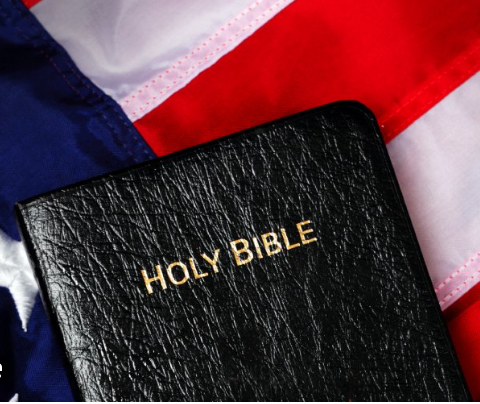
A recent survey by the nonprofit Public Religion Research Institute (PRRI) revealed that while Christian nationalism is becoming more and more influential in determining immigration, healthcare, and education policy, around two-thirds of Americans reject it or are dubious of it.
In a survey, seven out of ten Americans stated they disagree with (30%) or are dubious of (37%) Christian nationalism.
More than 75% of respondents in Virginia, New York, and California stated they disapprove of or are dubious about Christian nationalism.
At least 45% of respondents indicated they supported or sympathized with Christian nationalism in five strongly conservative states: North Dakota (50%), Mississippi (50%), Alabama (47%), West Virginia (47%), and Louisiana (46%).
According to the PRRI survey, Republicans (55%) are three times more likely than Democrats (16%) and more than twice as likely as independents (25%) to be Christian nationalists.
Many Christian nationalists think that God has called Christians to exercise dominion over all facets of American culture, that the federal government should proclaim the country to be a Christian nation, and that Christian ideals should be the foundation of American legislation.
According to Axios, Christian nationalist opinions have included anything from comments that democracy should end to requests for greater religion to be taught in public schools and even book bans.
“This once-fringe ideology has become prevalent in some deeply red states at a time when the nation overall is increasingly diverse and less religious,” Axios writes.
According to the survey, Latter-day Saints and Hispanic Protestants are also inclined toward Christian nationalism, but white evangelical Protestants are the most receptive, NPR said.
A recent ruling by the Alabama Supreme Court holding that frozen embryos have the same legal protections as people is sure to be welcomed by Christian nationalists.
limitations on LGBTQ rights, immigration limitations, and access to abortion are among Christian nationalists’ other top policy concerns. According to PRRI, they are also roughly twice as likely as other Americans to think that political violence is acceptable, as NPR reported.
Christian nationalist views are held by the majority of two religious groups: white evangelicals (66%) and Hispanic evangelicals (55%). According to other polls, both groups strongly support the former president Donald Trump.
The president of PRRI, Robert P. Jones, is the founder and author of the recently published book, “The Hidden Roots of White Supremacy and the Path to a Shared American Future.” Jones claims that supporters of Christian nationalism have come to characterize Trump’s political movement.
The poll for the PRRI American Values Atlas took place from March 9 to December 7, 2023. The survey is based on a representative sample of 20,799 persons (age 18 and older) from Ipsos’ Knowledge Panel who reside in all 50 states as well as Washington, D.C.
For results based on the complete sample, the margin of sampling error is plus-0.82 percentage points at the 95% confidence level.
